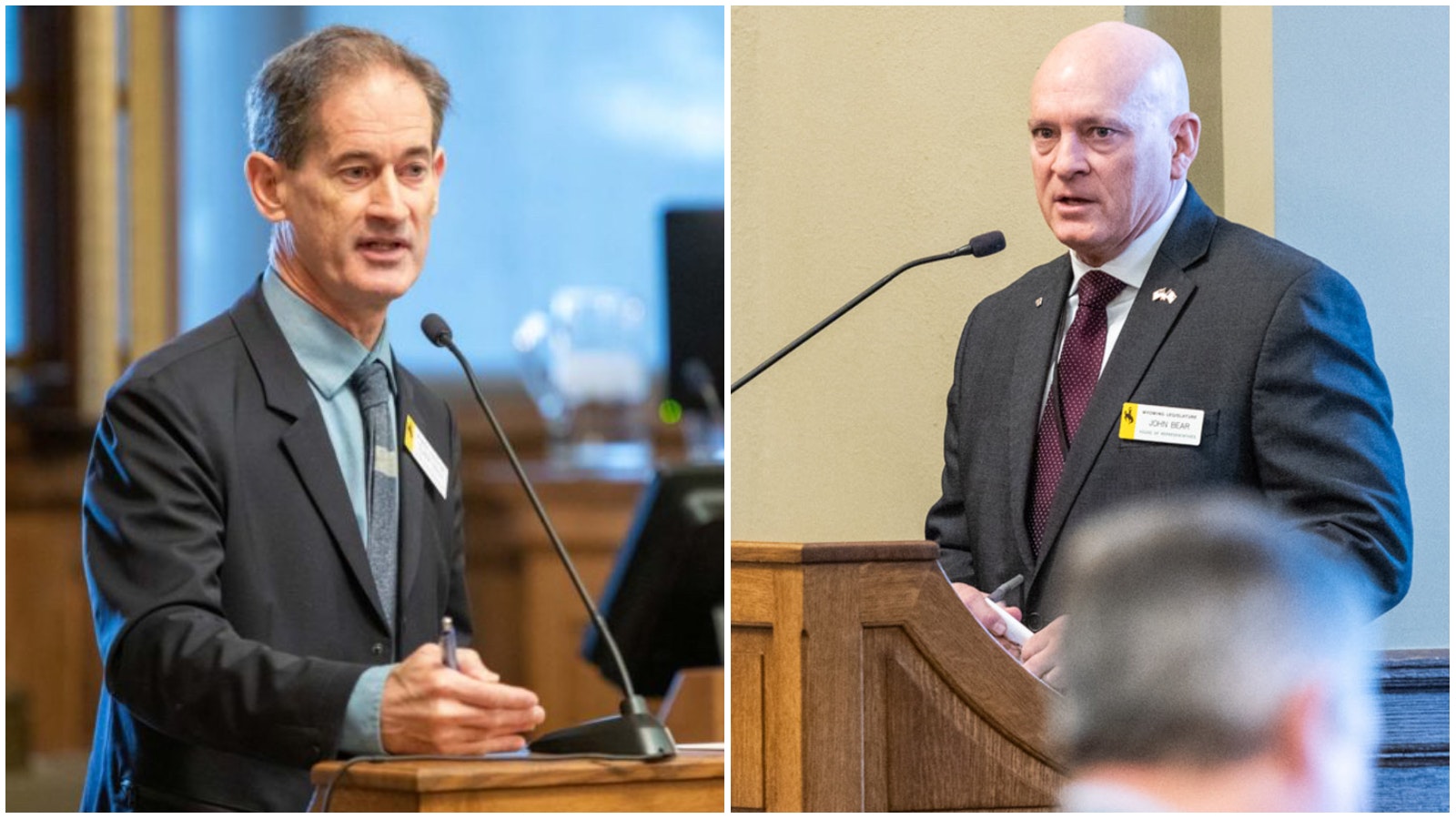Some Wyoming state lawmakers are already starting to gear up for the 2024 elections.
The Wyoming Freedom Political Action Committee, the official campaign funding arm of the Wyoming Freedom Caucus, recently launched its inaugural website. The Wyoming Caucus, a Republican caucus formed this spring to directly combat the Freedom Caucus’ efforts, also released its first website about a month ago.
There isn’t any substantially new information provided on either website, but what they represent means much more — some of the first major seeds of campaign marketing to be planted in Wyoming for the 2024 campaign season.
The Freedom Caucus website features profiles of prominent Freedom Caucus members and a section for people to donate to the political action committee.
This PAC is technically considered a separate organization from the Freedom Caucus, but caucus chairman state Rep. John Bear, R-Gillette, said both groups symbolically support each other.
Although no members of the Wyoming Caucus are officially listed on its website, there are op-ed news articles featured that were written by legislators like Speaker of the House Albert Sommers, R-Pinedale, Speaker Pro Tempore Rep. Clark Stith, R-Rock Springs, and Rep. Steve Harshman, R-Casper.
The group defines itself as “committed to focusing on the issues at home that matter most to our communities vs. pressures from out-of-state groups.” This is a shot at the Wyoming Freedom Caucus, which receives oversight and outside support from the Washington, D.C.-based State Freedom Caucus Network.
All Year-Round
Bear told Cowboy State Daily he sees this early campaign effort as part of a larger effort to get Wyomingites more in-tune with politics all year-round.
Although state lawmakers only convene for the Legislature for one or two months a year, they deliberate items and create draft bills throughout the year in committee meetings. With the addition of YouTube coverage and social media, there is much more opportunity for the public to engage with the Legislature than it did in the past.
“The days of a five- to six-month campaign season are really over,” Bear said. “It’s so important that our residents are being informed about the direction of their state. The public needs to be more informed.”
Although there are only nine Freedom Caucus members featured on the website, Bear said it is not indicative of the caucus’ full roster, which sits at roughly 26.
‘Uniparty’
A section of the Freedom Caucus website that talks about the group’s background leaves no doubt about its thoughts on other members of the Republican Party.
During the 2023 Wyoming Legislature, members of the Freedom Caucus openly criticized and targeted members of their own party who did not share the same stance on certain topics and bills. Many members of the Freedom Caucus have referred to these lawmakers as the “uniparty.”
“The open hostility displayed by the Uniparty in obstructing the will of the people has highlighted the stark contrast between the Wyoming Freedom Caucus and the established party,” the website reads. “This has presented voters with a clear choice, and the Wyoming Freedom PAC is committed to supporting more conservative candidates, thereby fostering the growth of the caucus and transferring governing power away from the political insiders.”
Other Notable PACs
In March, the Wyoming Caucus was announced, composed of a number of lawmakers who describe themselves as traditional Republicans who are detached from the hardline conservative Wyoming Freedom Caucus.
“It (Freedom Caucus) makes for an interesting dynamic in the Legislature” said Stith.
The Wyoming Caucus also has its own PAC, and two other similar PACs organized this spring. These were the Wyoming First PAC, chaired by Rep. Cyrus Western, R-Big Horn; and the Team Wyoming PAC, chaired by Casper attorney Tim Stubson. Stubson is also chair of the Wyoming Caucus PAC.
Stith said on Wednesday that the Wyoming First PAC will not be moving forward and was simply an early placeholder for the Wyoming Caucus.
The Wyoming Caucus PAC paid for the website.
Town Halls
The Freedom Caucus has had a busy interim session so far, hosting a handful of town hall events where members give their perspectives on a variety of topics that have included property tax reform, Second Amendment rights and parental control in the classroom.
“People have an opportunity to provide input to their legislators by bringing things to their attention at these town halls,” Bear said.
During a town hall in April, members of the Freedom Caucus made it clear they believe there’s no time like the present to look ahead to the next election, stating the group needs 10 more members to achieve many of its goals.
Bear said his group feels pressure from constituents who want immediate change on a number of issues like property tax reform, a topic that drew many residents to testify before the Legislature’s Revenue Committee in June. He embraces this pressure as he believes people can easily impact state politics, while national politics in Washington, D.C., is usually a tougher nut to crack.
It’s not unusual for an individual state legislator to host a town hall with constituents, but it’s far less common for a group to host this type of meeting, especially during the interim period of a nonelection year.
During the most recent town hall in Newcastle, Bear said 87 people attended.
“We’re looking to throw our net out a little wider and get more involvement,” he said.
Bear also made it clear the scope of discussions won’t be limited to state legislators.
“There’s five statewide representatives who are making voting decisions year-round,” Bear said. “They’re making decisions all the time.”
The state’s five top elected officials — Gov. Mark Gordon, Secretary of State Chuck Gray, Superintendent of Public Instruction Megan Degenfelder, State Treasurer Curt Meier and State Auditor Kristi Racines — can all make various agency rules without passing laws. State legislators, on the other hand, have to wait until the Legislature convenes to take almost any action through new laws.
Leo Wolfson can be reached at leo@cowboystatedaily.com.





